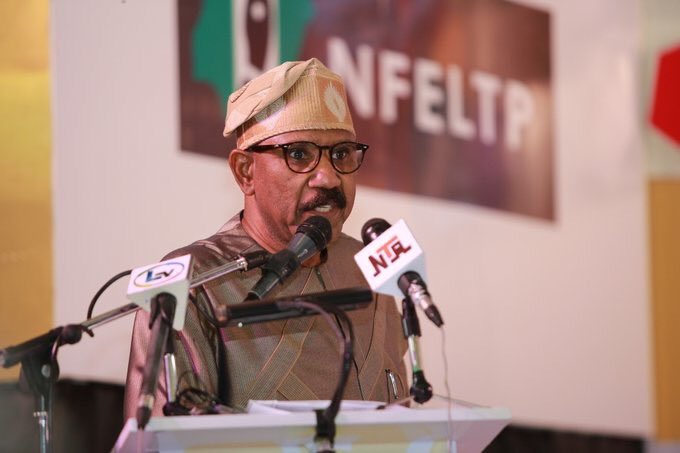Salisu Dahiru, director-general of the National Climate Change Council (NCCC), says the federal government is set to develop a framework for a carbon tax system to reduce greenhouse gas emissions in Nigeria.
A carbon tax is on fossil fuels – such as coal, oil, gasoline, and natural gas. It makes it possible for governments to set a price for greenhouse gas emissions to force emitters to pay for every ton emitted.
Speaking to state house correspondents over the weekend, Dahiru said the carbon tax system is contained in the climate change act and is part of the key deliverables that the NCCC hopes to implement.
He said the tax would generate revenue for the government and motivate people to change their fuel source, adopt new technology, and cut down emissions to avoid paying.
Advertisement
“That is now going to provide allowances for every entity, whether government or private sector, in terms of how much emissions it may be allowed, and exceeding those emissions could also attract penalties,” Dahiru said.
“These penalties are going to be contained in another deliverable that the Climate Change Act has also requested the council to do.
“That is to develop a framework for a carbon tax system in Nigeria. It will also look at where projects are being implemented in the country.
Advertisement
“These projects are capable of reducing overall carbon or greenhouse gas emissions. The harvest of these emissions reductions are normally contained in what we call an emissions reduction certificate, which can be translated into carbon credit, and then sold to potential buyers within the country and outside.”
Dahiru said the climate change secretariat would create a framework for carbon trading, set up an office complex, begin implementation of the energy transition plan, as well as establish a fund as the primary revenue source for the council.
“Because this is a climate change institution, we want to ensure that we comply with all the requirements of climate change compliance, as it is in the act, and also in Nigeria’s obligations under the NDCs,” he said.
“This means that the office complex must be seen to clearly demonstrate our commitments to renewable energy compliance for the main building and also reduction on its overall operations. And limiting, for instance, the use of paper, which we know comes from trees that have been felled.
Advertisement
“This Energy Transition Plan, which is the first among many African countries, is predicated on the use of natural gas as the transition foil for Nigeria as the transition energy source, and we know that what has been flared, is actually natural gas. So, we also know that one of the added advantages that the energy transition plan is going to have is to help to close the energy or power or electricity gap that we’re experiencing in the country.
“We are going to use the energy transition plan as the main launchpad for capturing the gas needed, if you take the population of Nigeria, which is over 200 million, and we are already experiencing shortages in terms of electricity, and utilising this gas for even domestic use alone is something that is going to be a big positive.
“So, the government is pursuing the implementation of this ETP as a very important project that will have multiple benefits, including reducing the energy gap.
“It will also help to find economic utility or utilization for our abundant natural gas and also to create the stimulus for industries to also shift from diesel to start the use of natural gas as the main fuel for the generators and for the operations and therefore help to promote economic growth and also create jobs.”
Advertisement
Advertisement
Add a comment






